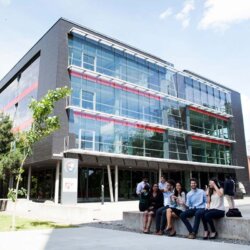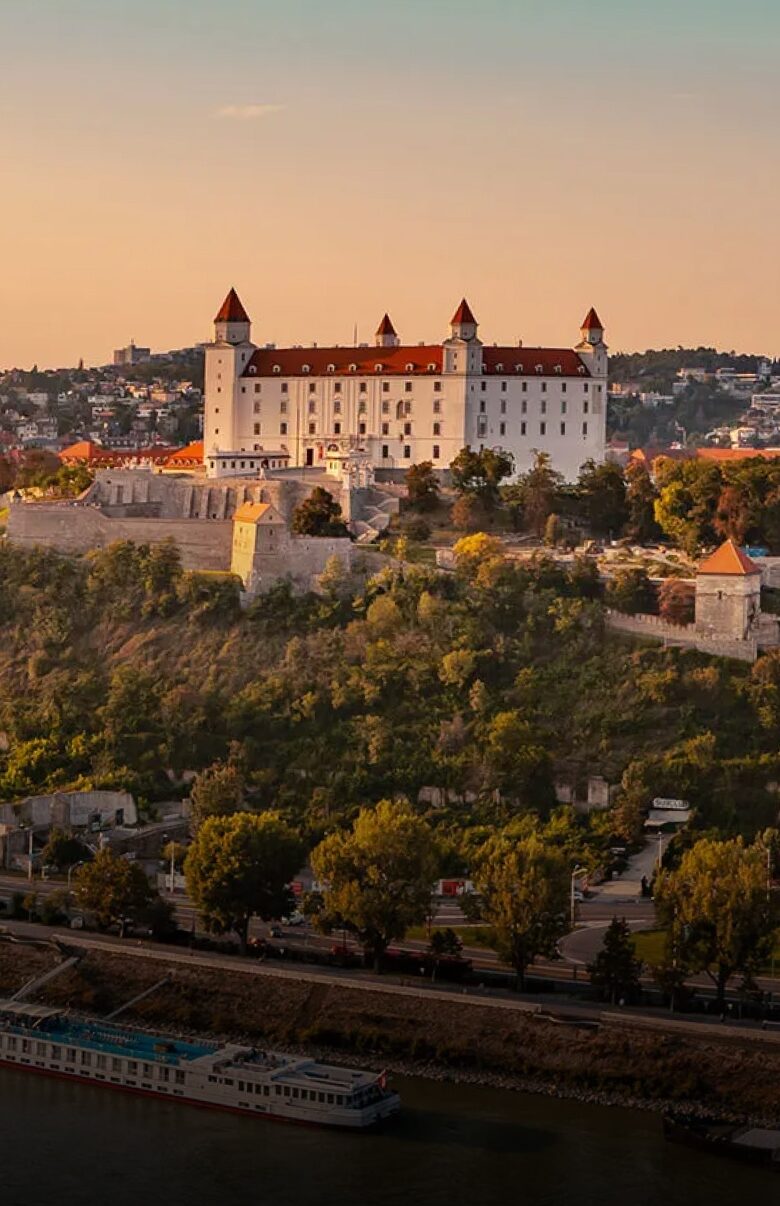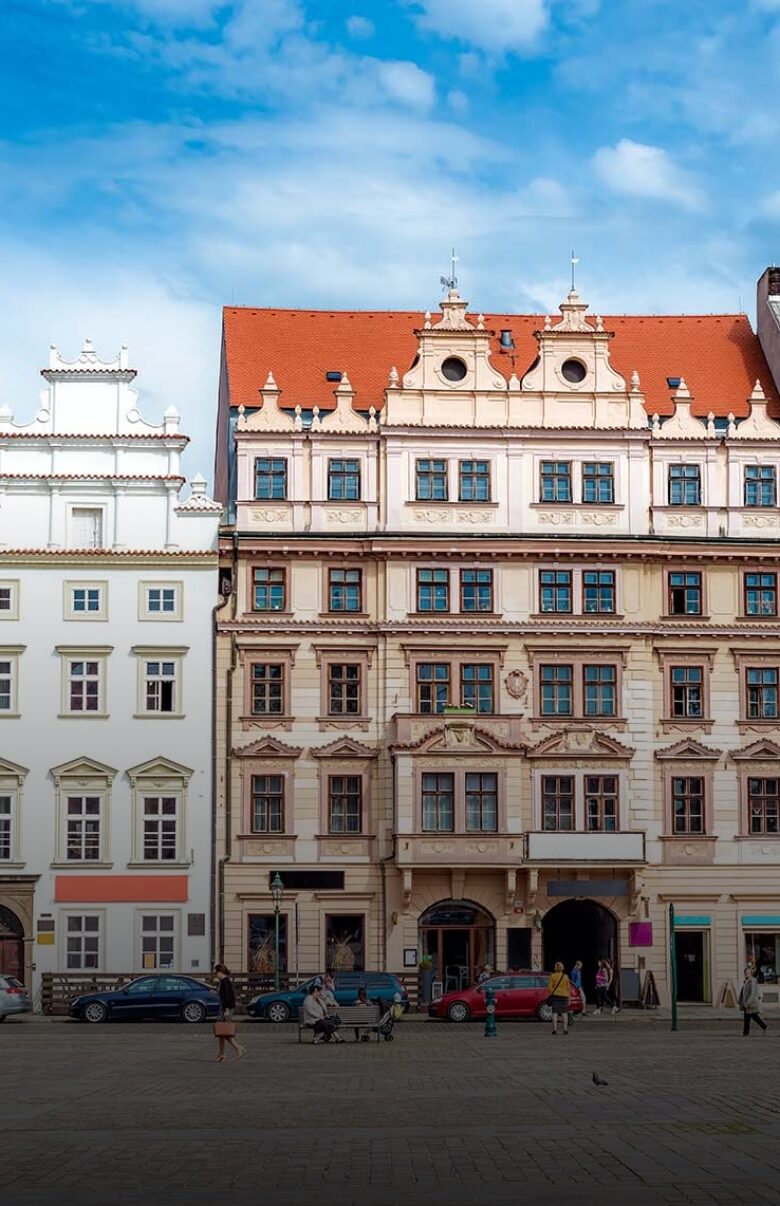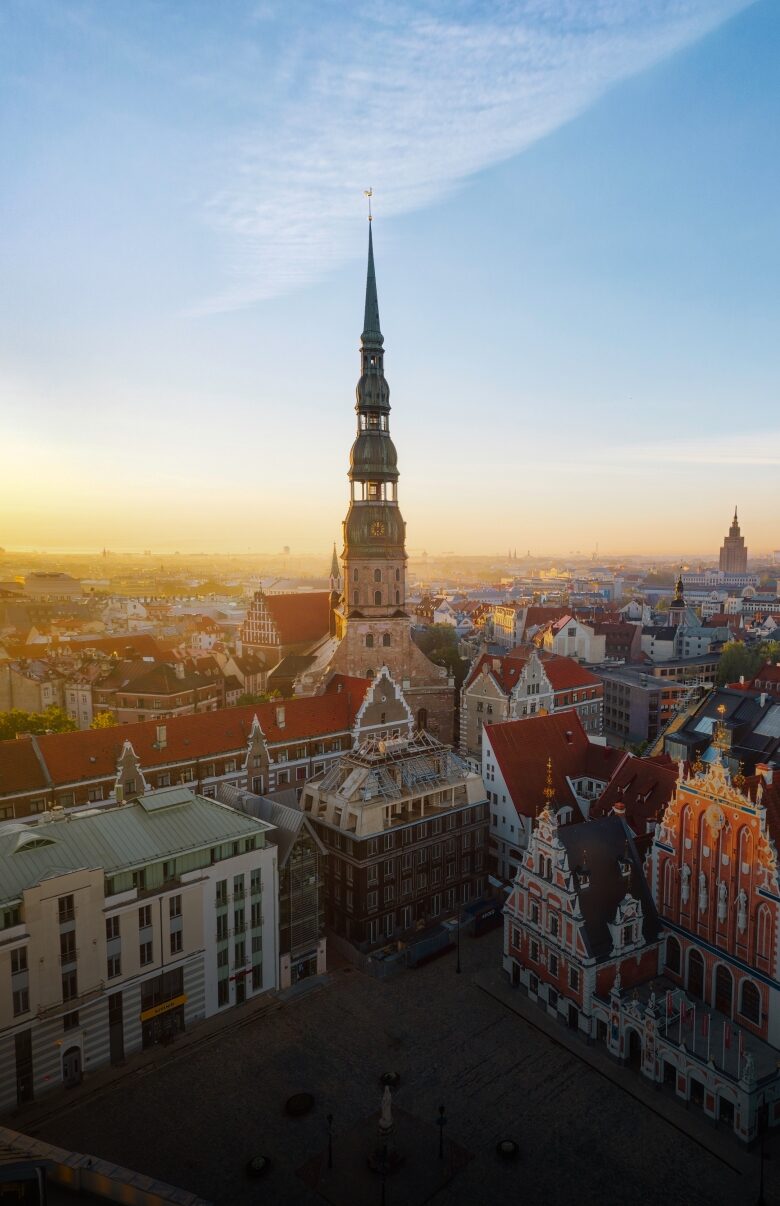Universities
Studying medicine in Lithuania
Every year, numerous students begin their medical studies in Lithuania. The Baltic country in Northern Europe has a rich history, diverse culture and breathtaking scenery. In addition, the universities attract students with an NC-free admission procedure, high-quality education and low tuition fees.
Are you interested in studying medicine in Lithuania?
We would be happy to advise you free of charge about your options for studying medicine in Lithuania.
In this article, we will give you a comprehensive overview of studying medicine in Lithuania. We will give you information about the different universities that offer English-language medical degree programmes. We will also show you how futuredoctor can support you on your path to studying medicine in Lithuania. Immerse yourself in the exciting world of studying medicine in Lithuania and discover what opportunities await you there!
What are the advantages of studying medicine in Lithuania?
The decision to purchase a Studying medicine abroad can be the start of an exciting adventure. Here you can find out more about the special features and advantages of studying medicine in Lithuania.
Studying without a numerus clausus (NC) and in English
Your A-level average (Numerus Clausus) plays an important role in the Application for medical studies does not play a role in Lithuania. Accordingly, school leavers can breathe a sigh of relief and need not fear a long waiting period. The dream of becoming a doctor after successfully completing the degree programme does not have to be dashed. For the admission procedure, participation in a science entrance test is required. This includes various multiple choice tests. However, you can prepare well for these. Especially if we help you!
Study medicine in Lithuania: EU-wide recognition of your degree
Due to the EU Professional Recognition Directive, medical studies completed in Lithuania at the medical universities we present are also recognised in Germany and other EU countries. The degree is even recognised in the USA and Israel.
International student community
Lithuania attracts students from different parts of the world - be it Lithuania, Germany, the USA or Switzerland. These different applicants lead to a diverse and multicultural environment. In this way, intercultural competence and cultural understanding can be promoted. You can get to know your fellow students and make friends quickly through the numerous social programmes offered by the universities.
Lively student cities and unique nature
Vilnius, the capital of Lithuania, offers a wealth of leisure activities for students outside the university library. Due to the various universities in the city, there is a large student community. This creates a lively atmosphere with numerous events, clubs, bars and activities tailored to students' interests. Despite its urban character, there are numerous green spaces and parks in Vilnius. The banks of the River Neris are ideal for walks or relaxing.
Kaunas also has a dynamic student atmosphere and the opportunity to enjoy an exciting nightlife thanks to the large number of students and numerous nightlife options. Culturally, Lithuania's second largest city also has a lot to offer in the form of museums and art galleries.
You can admire the country's beautiful nature on day trips to the Curonian Spit, a unique natural area along the Baltic Sea coast, or the Hill of Cross, a remarkable pilgrimage site.
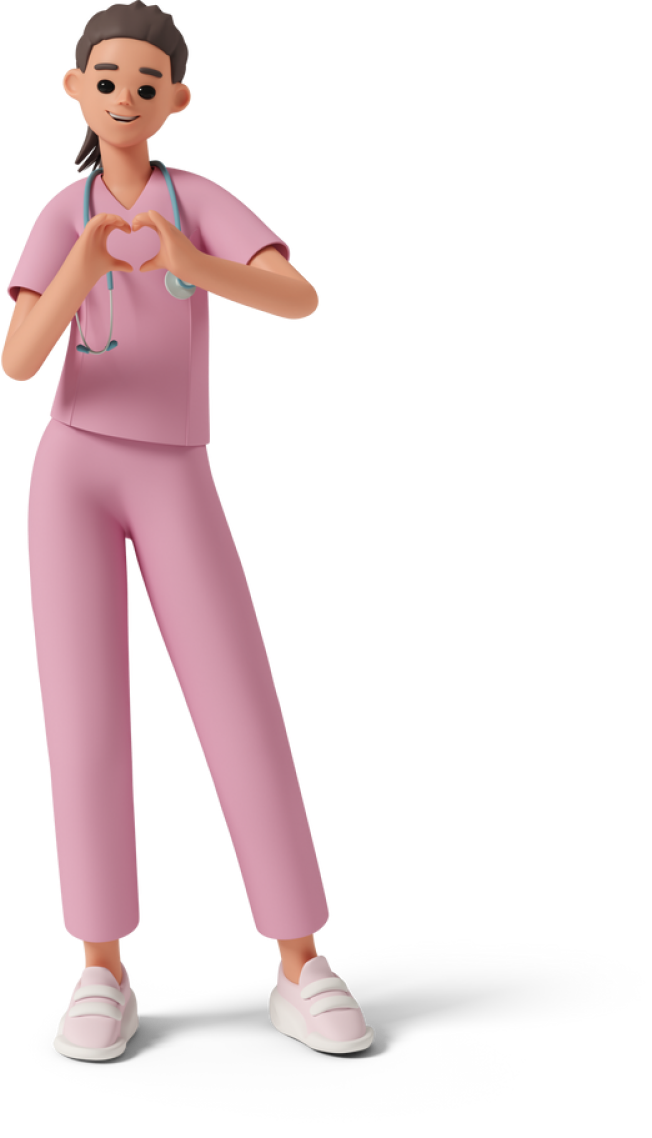
Study medicine abroad with futuredoctor
Do you dream of studying medicine, but the chances of getting a place in your home country are slim? We can help you find a suitable study place abroad.
Advantages at a glance:
- EU-wide recognised qualifications
- Study in English or German
- > 95% Success rate
- > 1,000 study places allocated
From the selection of universities and support in the application process to orientation and finding accommodation - we are at your side.
At which universities is it possible to study medicine in Lithuania?
It is possible to study medicine in English at the following universities in Lithuania:
University of Kaunas - Lithuanian University of Health Sciences
Studying medicine at the University of Kaunas offers you a mixture of high-quality training, practical experience and a lively student environment. Every year, applicants have the chance to secure one of the almost 90 study places. The medical degree programmes available here include human medicine and dentistry, as well as pharmacy as an alternative. The university is internationally networked with over 140 other universities, which promotes the exchange of knowledge and ideas on a global level.
It is interesting to know that, compared to human medicine, the dental and pharmacy degree programmes only take 5 years instead of the usual 6 years.
Vilnius University
Vilnius University is one of the largest universities in Northern Europe. Founded in 1579, it is also the oldest university in the Baltic region. The medical degree programme in Vilnius offers an outstanding education for prospective doctors. Students can choose between human medicine and dentistry. Almost 1,000 international students enrol here each semester and study in English. Teaching takes place in modern facilities and laboratories with high-quality medical equipment. There is a strong emphasis on learning practical skills.
You can ask us about the application deadline - we will be happy to help you and give you all the information you need.
What are the requirements for studying medicine in Lithuania?
To start studying at a university in Lithuania, you need a general higher education entrance qualification. The grade point average of your certificate is irrelevant, but good grades in science subjects are an advantage.
The universities have an admission test that you have to pass. This consists of a total of 60 multiple-choice questions in the fields of biology and chemistry. There is also a personal interview. We will help you prepare!
As the degree programme is taught in English, you will need an international language certificate, for example TOEFL or IELTS at level B2.
Studying medicine in Lithuania - structure and content
In Lithuania, medical studies are organised according to the Bachelor's/Master's system. The Lithuanian medical degree programme has many parallels to the German system. Lithuanian universities emphasise practical training in which medical students learn through realistic scenarios and patient cases, often directly in hospitals. Lessons are also held in Lithuanian. Students benefit from training in small groups of up to ten students, which creates a close Contact us This creates a close relationship with the lecturers and other students. This enables more intensive support and encouragement for students.
The medical degree programme in Lithuania is structured as follows:
In principle, there is a division into preclinical (such as anatomy, histology, physiology) and clinical phases (such as Cardiology, Surgery).
In the first year, students are taught anatomy, histology, genetics, physics and chemistry. Lithuanian is also taught until the fourth year. However, the language of instruction is mostly English.
In the second and third years, students then study the topics of reproduction and heredity, the basics of neuroscience, immunology, respiration and circulation, and metabolism.
In the last two years of the programme, the clinical modules and clinical medical practice are on the curriculum. How long does it take to study medicine in Lithuania? The duration of the medical degree programme with a Master's degree at the end is generally 6 years, as in Germany.
It is perfectly feasible to transfer to Germany during the course of your training. The similarities between the medical curricula of the two countries make it easier to transfer to a German university and have your qualifications recognised, provided you receive a corresponding notice of credit transfer.
The Erasmus programme also gives you the opportunity to spend a semester abroad in Germany or another EU country during your studies.
How much does it cost to study medicine in Lithuania?
To give you your Financing medical studies abroad to be able to realise the full potential of the project, careful consideration must be given to the costs involved.
The majority of the costs of studying medicine in Lithuania are made up of the university semester fees.
The University of Kaunas charges a tuition fee of 12,500 euros per year for the first four years of study and 13,000 euros per year from the fifth year onwards. There are also one-off fees such as an application fee of 150 euros and 250 euros for registration.
At Vilnius University you pay 13,000 euros per year and a one-off admission fee of 300 euros.
Applicants should be aware that these fees for the study place should not be taken lightly. When it comes to financing your studies, a Scholarship support.
The cost of living is significantly lower for people in Lithuania than in Germany or other EU countries. Depending on the city, you should budget between 150 and 400 euros for rent and around 200 euros per month for food. With a frugal lifestyle, you can make ends meet with 500 to 600 euros per month. This compensates for the high tuition fees.
What you didn't know about Lithuania
Good network! Lithuania ranks among the top countries in the world when it comes to providing the population with high-speed Internet access.
Lithuania's "fragrance of culture" - Lithuania is the only country in the world to have its own national perfume called "Scent of Lithuania".
The national dish in Lithuania is cepelinai. These are potato dumplings filled with minced meat or quark.
A green river - On Vilnius St. Patrick's Day, the river in Vilnius is dyed emerald green. This is an Irish tradition in itself and you may recognise it from reports about Boston or New York.
Applying to study medicine in Lithuania - What should I look out for?
As there is a science admission test and a personal interview at universities in Lithuania, you should prepare well for both in order to secure a place at the university. Medical study place to secure.
Your application documents, for example your university certificate or an English certificate, should be in English.
It is important that you adhere to the dates and times specified by the universities. Application deadlines Please note. In Lithuania, applications are only possible for the winter semester - this is also the start of the semester.
Are you ready to realise your dream of studying medicine in Lithuania? Contact us today and start your journey with futuredoctor. We look forward to accompanying you on your journey and working with you to realise your dream of a career in medicine.
Would you like to complete your studies in another northern country? Then take a look at the following countries: Medical studies Estonia, Medical studies Denmark, Medical studies Latvia, Medical studies Finland, Medical studies Sweden, Medical studies Norway.
And last but not least, good news for all those who don't have A-levels: There are also opportunities in other European countries to Studying medicine with a specialised baccalaureate to complete!
Starting signal
What are you waiting for? 🎉
Order your information pack now, find out more about studying medicine abroad and get started as a medical student!
Frequently asked questions
FAQs about studying medicine in Lithuania
How long does it take to study medicine in Lithuania?
The medical degree programme in Lithuania lasts 6 years for human medicine and 5 years for dentistry and is divided into 12 and 10 semesters respectively.
Is a medical degree from Lithuania recognised in Germany or Austria?
All Universities where you can apply via futuredoctor are available within the recognised throughout the EU. This means that you can work as a doctor in Germany, Austria or Switzerland after completing your studies in Lithuania.
Is it easier to study medicine in Lithuania?
Studying medicine is generally a demanding and intensive experience, regardless of where it is undertaken. Studying medicine in Lithuania is comparable to other European countries in terms of learning effort and examination standards. Whether it is easier or more difficult often depends on the student's personal adaptability, language skills and learning habits.
Is it good to study medicine in Lithuania?
Lithuania is known for its high-quality medical education. Universities such as the University of Health Sciences in Kaunas have an excellent reputation in the medical community. Many graduates successfully practise medicine in different parts of the world.
What requirements must be met to study medicine in Lithuania?
Applicants need a general higher education entrance qualification. A science admission test and a personal interview are also part of the admission procedure. A language certificate such as TOEFL or IELTS at level B2 is also required for the English-language degree programme.
At which universities can I study medicine with futuredoctor in Lithuania?
futuredoctor works closely with a medical university in Kaunas, Lithuania, which University of Health Sciences. This university offers English-language degree programmes in human medicine and dentistry and is known for its high-quality education.
How can futuredoctor help me with my medical studies in Lithuania?
futuredoctor offers comprehensive support throughout the entire process - from application and preparation to relocation, commencement of studies and beyond. Here you will find an overview of our entire range.
How large are the study groups at Lithuanian medical universities?
The exact size of the learning groups can vary depending on the university and course. In general, however, Lithuanian medical universities emphasise small learning groups in order to enable individual support and an interactive learning environment.
How much does it cost to study medicine in Lithuania?
There are tuition fees at Lithuanian universities, which must be paid annually or per semester. You can find more information on tuition fees on the respective university page here: University of Health Sciences Kaunas.
An overview of the costs involved in studying abroad (living costs, books, leisure time, accommodation, etc.) as well as an overview of the tuition fees at all our universities you can find here.
What is the cost of living in Lithuania?
The cost of living in Lithuania is significantly lower. You can get by on 500 to 600 euros per month, including rent and food.
How do I apply to study medicine in Lithuania?
To apply to study medicine in Lithuania, simply fill out our online application form. We will then inform you about all further steps of your application and start the application process at your chosen universities. Click here for the application.
What happens if I encounter problems during my medical studies in Lithuania?
futuredoctor is at your side. Our team is here to help you solve problems, whether they are academic or related to your life abroad. We offer support in overcoming challenges, from finding accommodation to professional issues and any other difficulties during your medical studies abroad.
Conclusion
Studying medicine in Lithuania offers numerous advantages for prospective medical students. These include:
- Admission independent of the Abitur averageApplicants only have to pass a science admission test.
- Recognition of the qualification in the EUThanks to the EU Professional Recognition Directive, the medical degree obtained in Lithuania is recognised throughout the EU. Countries such as the USA and Israel also recognise this qualification.
- International study environmentLithuania attracts students from all over the world, which contributes to a multicultural study atmosphere.
- Attractive study locationsThe lively cities of Vilnius and Kaunas offer a dynamic student life as well as cultural and natural attractions.
- Support from futuredoctorThis company supports applicants in choosing the right university, preparing for the admission test and other steps of the application process.
- Tuition fees and cost of livingWhile tuition fees are higher than in some other countries, the cost of living in Lithuania is comparatively low.
There are also interesting facts about Lithuania, such as the good internet network and the unique culture. The application procedure includes a science test and a personal interview, for which good preparation is essential. For those without a traditional Abitur, there are also opportunities to study abroad in Europe.
Studying medicine abroad
